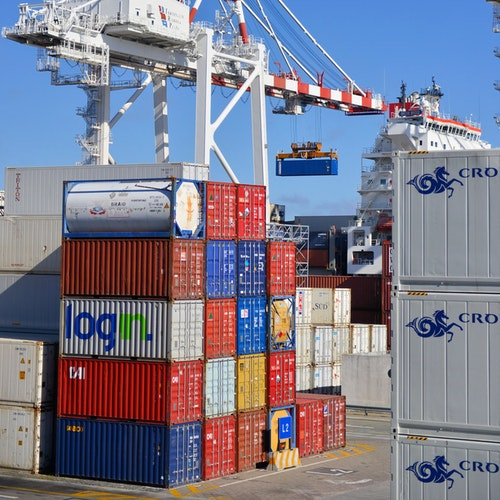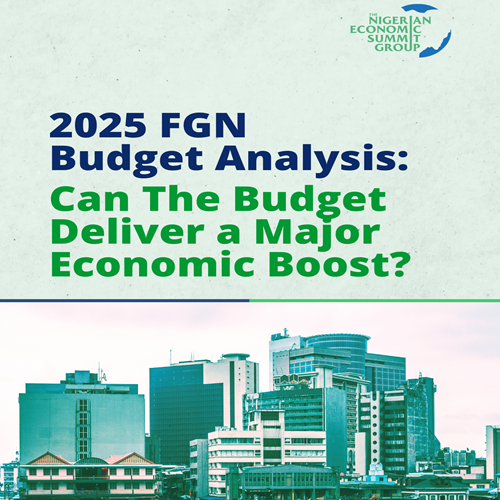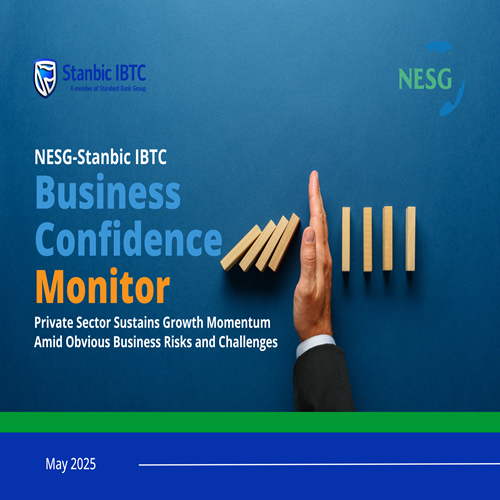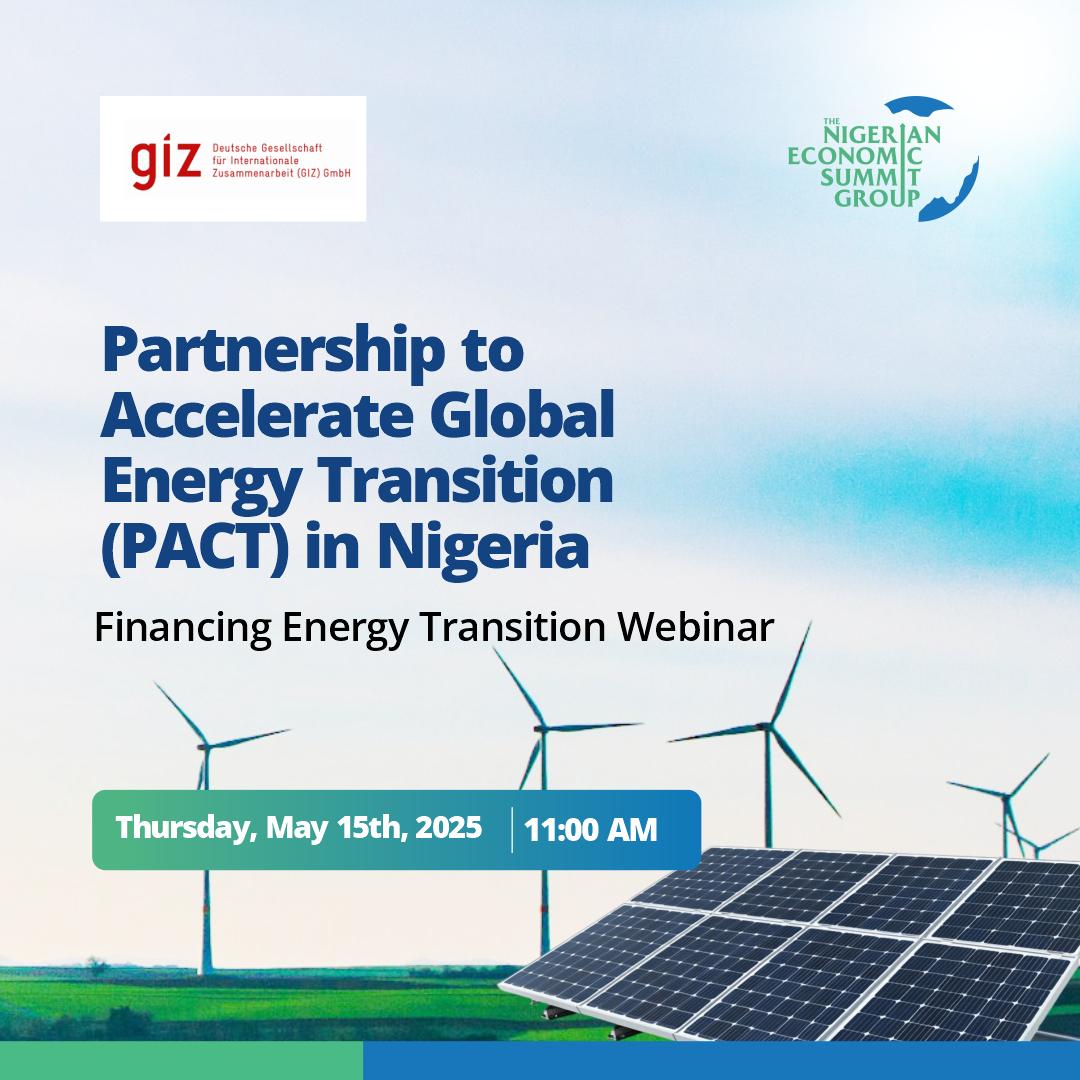Posted Wed, Oct 6, 2021 7:47 AM
NESG releases 2021 Q2 Foreign Trade Alert

The Nigerian Economic Summit Group (NESG) 2021 Q2 Foreign Trade Alert 2021revealed that Nigeria’s external trade for 2021Q2 improved on less stringent COVID-19 restrictions, amid new variants of the Coronavirus.
To download the NESG 2021 Q2 Foreign Trade Alert 2021, click here
Nigeria’s external trade value rose sharply by 88.7% (year-on-year) to N12 trillion in the second quarter of 2021 from N6.4 trillion in 2020Q2. Cumulatively, the value of external trade stood at N21.8 trillion in the first half of 2021, 46.3% higher than its level (N14.9 trillion) in the corresponding period of 2020. Similarly, the external trade value in Q2’2021 was over one-fifth higher than Q1’2021 value (N9.8 trillion). The rapid improvement in the country’s external trade value could be largely attributed to the relaxation of pandemic-induced restrictions, amidst persistent spread of the Delta variant of COVID-19.
Merchandize imports were higher than merchandize exports, leading to a trade deficit of -N1.9 trillion in 2021Q2, same as in 2020Q1. On a cumulative basis, trade deficit for the first half of 2021 stood at –N5.8 trillion, larger than its level in the corresponding period of 2020 (-N2.3 trillion). It is noteworthy that Nigeria’s trade deficit has persisted since 2019Q4.
The value of imported commodities rose from N6.9 trillion in 2020Q2 to N7 trillion in 2021Q2 (see Table 2). The slight increase in overall imports was driven by larger import bills in favour of food & live animals, and mineral fuel products. Similarly, the import values of other items – chemicals, manufactured goods, machinery & transport equipment, as well as, other categories of imports - rose in 2021Q2 over their respective levels in 2020Q2.
To download the NESG 2021 Q2 Foreign Trade Alert 2021, click here
Nigeria requires deliberate efforts to promote value chain development in agro-processing and light manufacturing to improve export proceeds, going forward. The improvement in earnings from agricultural and manufacturing exports suggests the increasing need to stimulate the local production of agricultural value chains and light manufactured products. While this would help to de-emphasize Nigeria’s overdependence on petro-dollars, it would equally avail the country the opportunity to spur non-oil sector growth and to diversify its export destination. Considering that Nigeria is a net importer of food items and manufactured products (including refined fuel), the government needs to address the structural challenges bedeviling the manufacturing sector. Efforts should be channeled to improving foreign exchange access amongst the sector players, investing in research and development to explore and leverage local resource endowments and talents, eliminating multiple taxation that threatens business existence, addressing power supply deficit, as well as, removing regulatory bottlenecks. The recently passed Petroleum Industry Act (PIA) should be made to deliver on its key promise of improving investment inflows into the downstream oil and gas sector, as this would reduce or even curb the importation of refined petroleum and oil-related products into Nigeria. Achieving this feat would help the country to save a large chunk of foreign exchange earnings expended on imports and to boost external reserves.
There is also an urgent need to address transport infrastructure bottlenecks and improve logistics as part of measures to reaping the full benefits of AfCFTA. Anecdotal evidence has shown that countries with modern transport infrastructure and improved logistics are better positioned to maximize the gains from the African Continental Free Trade Area (AfCFTA) agreement. It is upon this premise that the Nigerian government urgently requires an effective Public-Private Partnership (PPP) framework that could help narrow the country’s huge infrastructural deficit. In 2018, the African Development Bank estimated that Nigeria requires as much as US$3 trillion in the next 26 years to plug her infrastructural gap, and this corresponds to US$115.4 billion (N43.7 trillion)[1] per annum. However, estimated the capital releases in 2020 was N1.8 trillion (US$4.7 billion), representing 4.1% of the annual funding requirements to plug infrastructural gap. If the Federal Government of Nigeria maintains a similar spending pattern long into the future, it will take approximately more than 6 centuries to fully plug infrastructural gap in Nigeria. Additionally, there is an urgent need to improve the operational efficiency of the existing seaports (about 6 in number) and also create new ones for speedy clearance of consignments henceforth.
To download the NESG 2021 Q2 Foreign Trade Alert 2021, click here
Yinka Iyinolakan
Head, Corporate Communications,
NESG
Download The EPR-2020-towards-an-inclusive-growth-framework Document
Find a blog post
Latest Releases

2025 FGN Budget Analysis: Can Th .. Read
1 week ago

NESG Stanbic IBTC Business Confi .. Read
2 days ago

Engagement Towards a Successful .. Read
4 days from now
